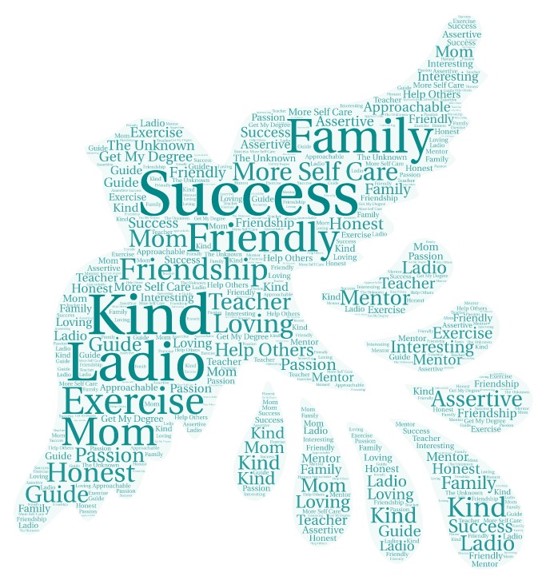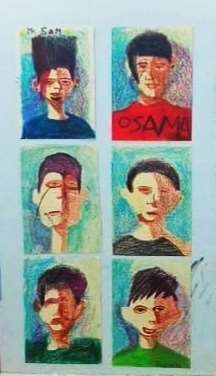 myCSUSM
myCSUSMProjects
Mindfulness and the Care Economy Project
Imagine what it would feel like to live in a world where you knew without a shadow of a doubt that if you were ever sick or incapacitated or elderly, people would take care of you with love and dignity, not as an object of pity but because they could not be well unless you were well.
Care work can be one of the most powerful ways in which we can strengthen our social bonds with each other. Receiving and providing care when we need it the most is the essence of building a more compassionate world. When we are cared for and are able to care for others it not only enhances our wellbeing, but it also increases our ability to function more effectively.
Today the question is not whether we should care but if our world is to survive, can we afford not to care? We are all dependent on each other and require care from each other to survive. None of us could have survived to adulthood if someone hadn’t taken care of us, fed us and sheltered us. And as adults there will be times in our lives when we will be sick, when we might be incapacitated, when we will most likely age to the point of needing more intensive care. Those are the times in our lives when we are at our most vulnerable and need care and compassion from each other. Most of that care globally is being provided by women within a paid or unpaid context which exacerbates gender inequalities in all domains. With increasing numbers of people aging and entering into that phase of their lives when they will depend on others for care we are also facing a global care crisis. This pandemic has exacerbated the care crisis and has taught us that care work must be a shared responsibility of all human beings.
Purpose of this study is to understand the role of compassion in inspiring people to work together to create a more just and compassionate care economy that will not only provide the infrastructure necessary for all human life to flourish but will also help decrease inequalities in health, education and income.
Structure of the session: Come join us for a 2-hour session to participate in mindfulness activities designed to build compassion, share your stories and learn more about the care economy. We will then ask you to complete a survey which should take approximately 10 to 15 minutes. The primary risk of participation is that you might be uncomfortable participating and sharing your own experiences with the care economy. The main benefit is that you will learn more about the care economy and become aware of the care crisis and actions you can take with others to bring change.You will also receive a $10 Amazon gift card for participating in this study.

Register: To join us, please sign up for one of the care economy sessions listed below.
| DAY | TIME | LOCATION |
|---|---|---|
| TUESDAY, APRIL 16 | 5:30PM TO 7:30PM | SBSB 3219 |
| THURSDAY, APRIL 18 | 5:30PM TO 7:30PM | SBSB 3219 |
| FRIDAY, APRIL 19 | 5:30PM TO 7:30PM | SBSB 3219 |
| TUESDAY, APRIL 23 | 5:30PM TO 7:30PM | SBSB 3219 |
| THURSDAY, APRIL 25 | 10:00AM TO 12:00PM | SBSB 4221 |
| THURSDAY, APRIL 25 | 5:30PM TO 7:30PM | SBSB 3219 |
| FRIDAY, APRIL 26 | 2:30PM TO 4:30PM | SBSB 2207 |
| FRIDAY, APRIL 26 | 5:30PM TO 7:30PM | SBSB 3219 |
| TUESDAY, APRIL 30 | 5:30PM TO 7:30PM | SBSB 3219 |
| THURSDAY, MAY 2 | 5:30PM TO 7:30PM | SBSB 3219 |
| FRIDAY, MAY 3 | 10:00AM TO 12:00PM | SBSB 4221 |
| FRIDAY, MAY 3 | 5:30PM TO 7:30PM | SBSB 3219 |
Please contact Ranjeeta Basu at rbasu@csusm.edu if you have questions or would like to know more about this project.
With our Contemplative Care Project, you can help address the care crisis and be a part of the solution!
NIH Grant Funded Project Using Mindfulness to Reduce Stress and Improve Wellbeing of Students in STEM in Partnership with CTREE
CTREE has a very successful program to prepare students from underrepresented groups for professional research careers in the biomedical sciences through CSUSM's URISE and B2PhD programs that serve to advance the goal of NIH to develop a more diverse and inclusive research environment. This supplement initiative (2023-24) is designed to directly address issues of wellness and resilience for our student trainees by developing a series of workshops aimed at reducing stress and anxiety using mindfulness. These workshops will create opportunities to build participants’ capacity to co-create safe and inclusive research environments and experiences. This work will serve as a model for our student programs.
Mindfulness, Procrastination and Sense of Belonging in First Year Programs
Project Title: Using Contemplative Practices To Reduce Procrastination, Increase Sense Of Belonging and Reduce Equity Gaps (2023-24)
In a recent national survey, students identified procrastination as the most important barrier to their academic success, with finances a distant second place. All students don’t experience these barriers in the same way and don’t have the same resources or supports to deal with these challenges. Fear of failure, stereotype threat and other factors cause students, especially first-generation students, to think that they don’t belong in college, making it harder to retain them. We propose training faculty in evidence-based contemplative pedagogical strategies designed to reduce procrastination, increase sense of belonging and reduce equity gaps. Our project will reach eight faculty and several hundred students via First-Year Seminar classes. Research has documented that contemplative practices build capacity for resilience, sense of belonging and academic success; by tailoring these strategies to those who most need them, we hope to contribute to higher graduation rates and lower equity gaps, especially among first-generation and male students.
Impact of Contemplative Pedagogy on Compassion Among College Students
As a participant in the Summer Research Institute offered by the Mind & Life Institute, faculty director of CCP, Dr. Ranjeeta Basu conducted a research study that considers the relationship between contemplative pedagogy and the capacity for compassion among college students. The participants in this study were students who enrolled in two sections of ECON 445 (Gender and Development). Students from both sections of the class were randomly assigned to one of two groups: one that was taught using contemplative pedagogy and the control group that was not. At the end of the semester, each student was given 3 extra credit points which they could distribute to self, to another specific student or to a common pool that the instuctor would use to help those students who were failing the course and needed the most help. As predicted students in the contemplative pedagogy group were significantly more likely to give to the common pool than the control group. Conversely students in the contemplative pedagogy group were significantly less likely to give to self than the control group. These results are being prepared for submission to a journal for publication.
Using Mindfulness to Reduce Recidivism Among Children in Conflict with the Law in Mumbai
Project Title: Hum Honge Kamyab (We Shall Overcome)
Mindful CSUSM collaborated with Storytelling Works and Department of Women and Child Development in India to successfully implment a collaborative project that focused on reducing recidivism among children in conflict with the law in Mumbai, India.
Based on storytelling and mindfulness, this program uses dance, theatre, and the visual arts as transformational tools for sustainable rehabilitation. This collaborative project conceptualized and facilitated by a team of innovative educators brought together the Department of Women and Child Development, India, mindfulness experts, and artists to create a program that can create positive change in the lives of children across the world.







